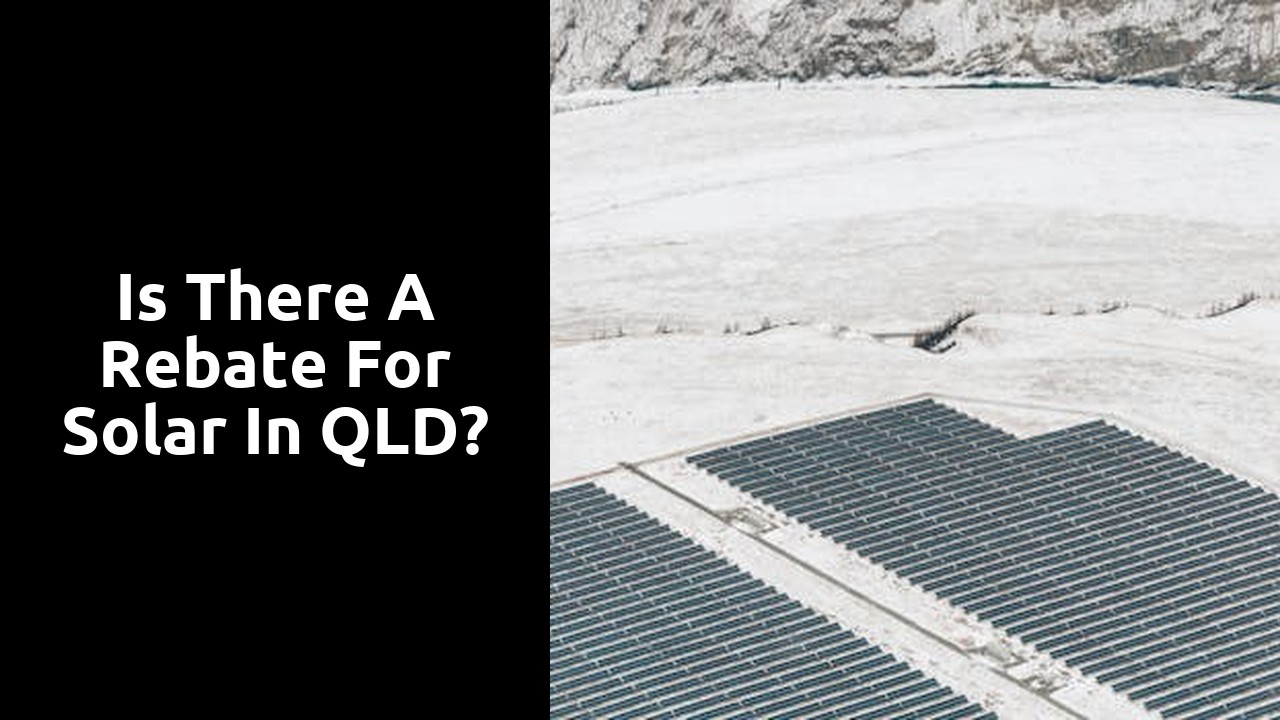
Common Mistakes to Avoid During the Application
When applying for the Australian government solar rebate for 2024, there are several common mistakes that applicants should steer clear of to ensure a smooth and successful submission process. One common error to avoid is providing inaccurate information when filling out the application form. It is crucial to double-check all details, such as your contact information, proof of purchase for your solar panel system, and any other required documentation to avoid delays or potential disqualification from receiving the Solar Panel System Rebates and Incentives.
Another mistake to watch out for is missing the application deadline. Keep track of the submission date and ensure all required documents are ready to be submitted on time. Failure to meet the deadline could result in a missed opportunity to benefit from the government's solar rebate program. Stay organized and proactive throughout the application process to maximize your chances of receiving the solar rebate for 2024.
Tips for a Successful Submission
When looking to submit your application for the Australian government solar rebate, following these tips can help ensure a smoother process. Start by double-checking all required documentation, including proof of purchase and installation details for your solar panel system. Missing or incomplete information could delay your rebate approval, so meticulous attention to detail is key.
In addition, make sure you meet all eligibility criteria before applying for the solar rebate. Ensuring that your solar panel system meets the necessary standards and that your property is compliant with the program requirements will increase your chances of a successful submission. By taking the time to prepare your application thoroughly and meeting all the necessary guidelines, you can expedite the process and secure the Solar Panel System Rebates and Incentives that you are entitled to receive.
Understanding the Tax Implications of the Solar Rebate
The Australian government provides solar panel system rebates and incentives to encourage the adoption of renewable energy sources. It's important for recipients to be aware of the tax implications that come with receiving these benefits. In Australia, the solar rebate is not subject to income tax as it is considered a discount on the purchase of the solar panel system. However, the value of the rebate may affect the capital gains tax implications if the property is sold in the future. It's recommended to seek advice from a tax professional to fully understand how the solar rebate may impact your tax situation and to ensure compliance with Australian tax laws.
Financial Considerations for Recipients
For those who qualify for the Australian government solar rebate, it's essential to also consider the financial implications of receiving this support. Solar Panel System Rebates and Incentives can have various financial considerations that recipients should take into account. Firstly, recipients must be aware of any potential impacts on their taxes. While the rebate itself is not taxable, the savings from installing a solar panel system may affect other aspects of their tax situation. It's advised to consult with a tax professional to understand how the rebate might influence their overall financial obligations and benefits.
Furthermore, recipients of the solar rebate should carefully review their energy consumption patterns and potential savings. While the rebate can significantly reduce the upfront cost of installing a solar panel system, individuals should also calculate the long-term financial benefits. Factors such as electricity savings, feed-in tariffs, and maintenance costs should be considered to determine the overall financial impact. Understanding the full scope of Solar Panel System Rebates and Incentives is crucial to making informed financial decisions and maximizing the benefits of renewable energy adoption.
Additional Support Programs Available Alongside the Solar Rebate
When looking to further support renewable energy adoption, the Australian government offers various additional support programs alongside the solar rebate. These programs aim to provide recipients with assistance beyond the initial rebate, ensuring a comprehensive approach to transitioning to solar energy. Understanding these supplementary programs can help individuals and businesses maximize their benefits and support in embracing sustainable energy practices. By combining the solar rebate with these additional support initiatives, applicants can unlock a range of incentives and resources to enhance the affordability and effectiveness of their solar panel system installations.
Solar panel system rebates and incentives can be complemented by programs that offer technical assistance, educational resources, and community engagement opportunities. These additional support programs are designed to empower individuals and organizations to make informed decisions regarding their solar energy investments while fostering a community of like-minded individuals committed to environmental sustainability. Leveraging these supplementary initiatives alongside the solar rebate can not only expand the impact of renewable energy adoption but also cultivate a network of support for ongoing education and advocacy in the realm of sustainable energy solutions.
Other Government Initiatives for Renewable Energy
In addition to the solar rebate program, the Australian government has implemented various other initiatives to promote renewable energy in the country. One such initiative is the establishment of Solar Panel System Rebates and Incentives designed to encourage households and businesses to adopt solar energy solutions. These rebates and incentives aim to make solar panel systems more accessible and affordable for a broader range of Australians, thereby increasing the uptake of renewable energy sources across the nation.
Furthermore, the government has introduced programs that focus on supporting research and development in the renewable energy sector. By investing in innovative technologies and sustainable practices, these initiatives aim to drive advancements in renewable energy generation and storage. Through a combination of financial support, regulatory frameworks, and policy incentives, the Australian government continues to demonstrate its commitment to transitioning towards a more sustainable energy future for the benefit of both current and future generations.
FAQS
What is the Australian government solar rebate for 2024?
The Australian government solar rebate for 2024, also known as the Small-scale Renewable Energy Scheme (SRES), provides financial incentives to support the installation of solar panel systems on residential and commercial properties.
Who is eligible for the Australian government solar rebate for 2024?
Eligibility for the Australian government solar rebate typically includes homeowners, landlords, and businesses who install solar panel systems that meet the program's requirements.
How much rebate can I expect to receive in 2024?
The rebate amount for solar panel installations can vary depending on factors such as the size of the system, location, and the current market conditions. It is recommended to check with the Clean Energy Regulator for the most up-to-date rebate amounts.
What are the common mistakes to avoid during the application process for the Australian government solar rebate?
Common mistakes to avoid during the application process include providing incorrect information, not meeting the eligibility criteria, and missing important deadlines. It is crucial to carefully review the requirements before applying.
What are some tips for a successful submission of the Australian government solar rebate application?
To ensure a successful submission, it is advisable to double-check all documentation, seek professional advice if needed, submit the application on time, and keep records of all communications related to the rebate application.
What are the tax implications of the Australian government solar rebate for 2024?
The rebate received through the Small-scale Renewable Energy Scheme (SRES) is generally not considered taxable income. However, it is recommended to consult with a tax professional to understand the specific tax implications based on individual circumstances.
Are there any financial considerations for recipients of the Australian government solar rebate?
Recipients of the Australian government solar rebate should consider factors such as the upfront costs of solar panel installation, ongoing maintenance expenses, potential savings on electricity bills, and the long-term return on investment.
What additional support programs are available alongside the Australian government solar rebate?
In addition to the solar rebate, recipients may also benefit from other government initiatives such as energy efficiency programs, grants for renewable energy projects, and incentives for battery storage systems.
Are there other government initiatives for renewable energy in Australia?
Yes, Australia has various other government initiatives aimed at promoting renewable energy, including the Renewable Energy Target (RET), emissions reduction schemes, and funding for research and development in clean energy technologies.""" These FAQs provide valuable information to readers seeking clarification on the Australian government solar rebate for 2024 and related topics.
